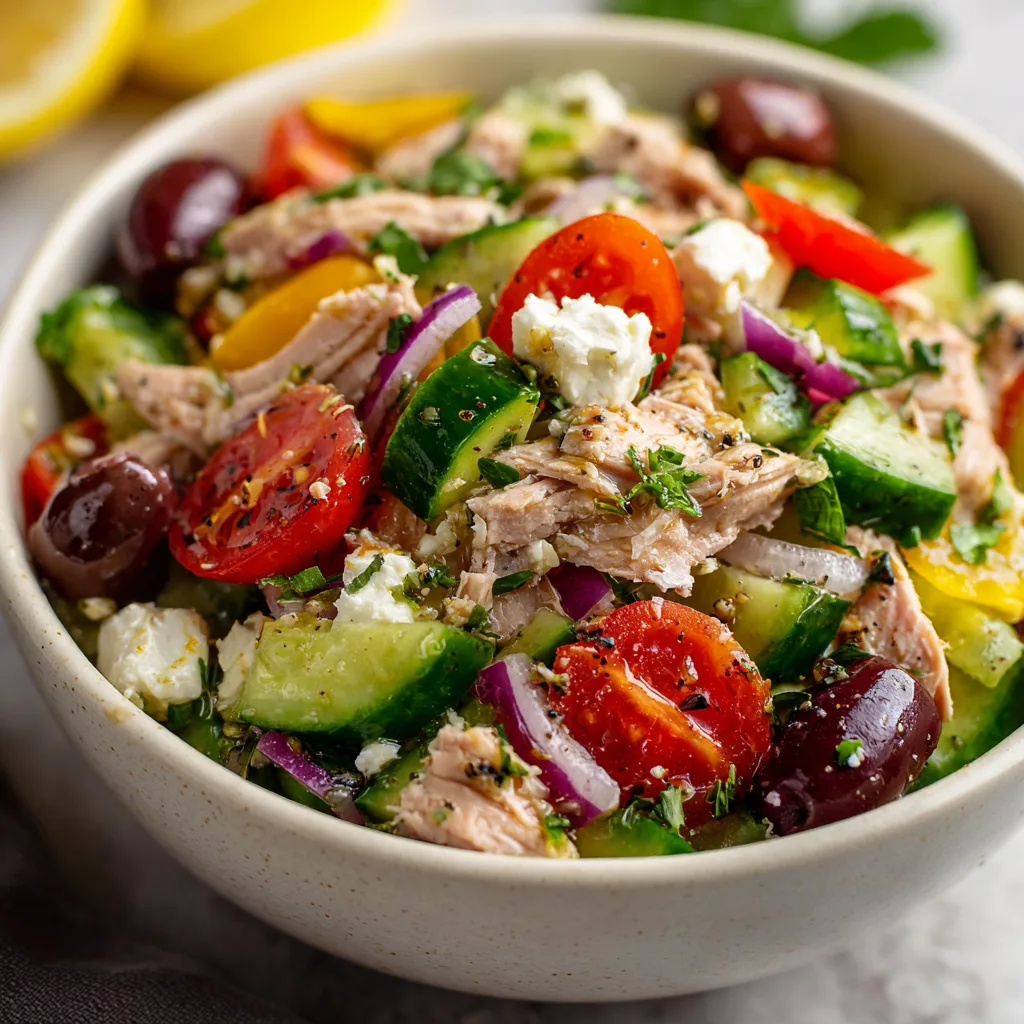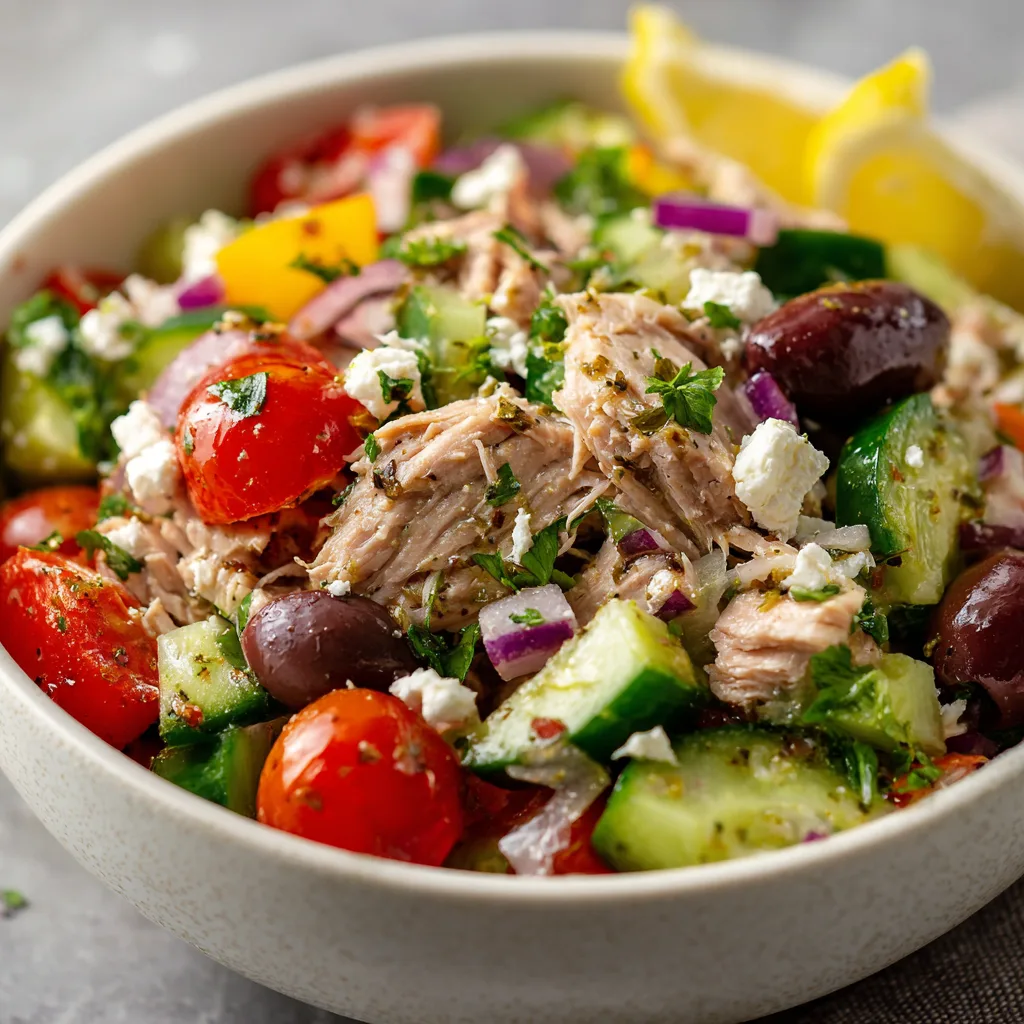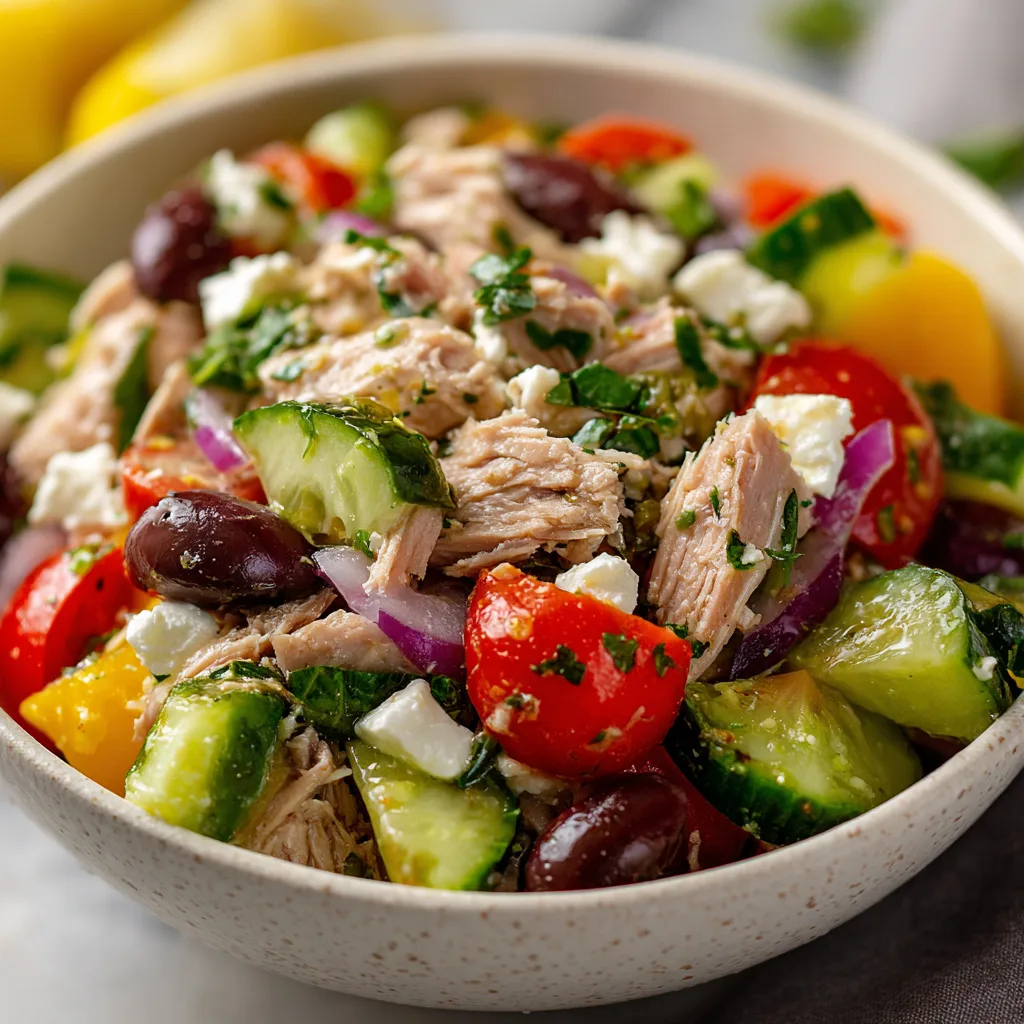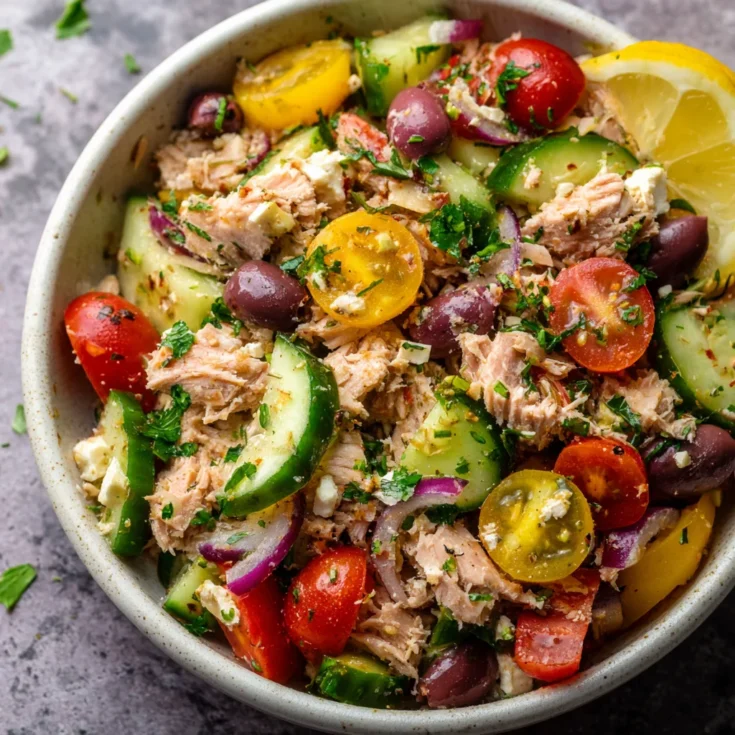Introduction to Mediterranean Tuna Salad
What Is a Mediterranean Tuna Salad? Understanding Its Roots and Appeal
Mediterranean cuisine is celebrated worldwide for its fresh ingredients and bold flavors. Rooted in countries bordering the Mediterranean Sea, this culinary style emphasizes vegetables, healthy fats, herbs, and lean proteins. The Mediterranean tuna salad captures these elements perfectly. It combines flaky tuna with crisp vegetables, tangy olives, and vibrant herbs, all tossed in a zesty dressing. This salad offers a delicious and nutritious option that reflects the region’s love for wholesome, balanced meals. It highlights simplicity without sacrificing flavor, making it an ideal choice for anyone seeking a healthy dish that feels satisfying. Mediterranean tuna salad stands out as both a flavorful and nourishing dish, suitable for any time of day.
In today’s fast-paced world, single-serving recipes have become increasingly important. They cater to busy individuals who seek quick, balanced meals without the hassle of leftovers. A salad made just for one helps control portions and prevents food waste, supporting healthier eating habits. This approach also allows for greater creativity and personalization with ingredients, tailoring the salad to each person’s taste preferences and dietary needs.
Why Choose a Single-Serving Mediterranean Tuna Salad? Benefits and Convenience
Single-serving recipes offer several practical advantages, especially when it comes to meals like Mediterranean tuna salad. First, portion control plays a vital role in maintaining a balanced diet. Preparing just one serving helps avoid overeating and ensures that calorie intake aligns with personal goals. Additionally, single servings help reduce food waste significantly by using only the ingredients needed for one meal.
This approach suits solo diners perfectly, whether living alone or simply eating independently at times. It also benefits meal preppers who want to prepare fresh, ready-to-eat meals without excess leftovers. Moreover, cooking for one provides flexibility to adjust ingredients, spice levels, and flavors to match individual preferences. You can customize the salad with different veggies, herbs, or dressings, creating endless variations without committing to a large batch.
In summary, a single-serving Mediterranean tuna salad offers convenience, nutrition, and versatility. It empowers you to enjoy a fresh, tasty meal tailored specifically for your needs, making it an excellent choice for today’s health-conscious and time-savvy eaters.

Key Ingredients and Their Benefits in Mediterranean Tuna Salad
Tuna Varieties for Salad: Choosing the Best Type for Flavor and Nutrition
Tuna forms the heart of a Mediterranean tuna salad, making its selection essential. Commonly used varieties include albacore and skipjack. Albacore tuna offers a mild flavor and firm texture, ideal for salads that require substantial, flaky pieces. Skipjack tuna, often labeled as “light tuna,” has a stronger taste and softer texture, lending a different but equally tasty profile to the dish.
Beyond taste, tuna boasts impressive nutritional benefits. It’s a rich source of high-quality protein, supporting muscle repair and overall health. Additionally, tuna contains omega-3 fatty acids, which promote heart health and reduce inflammation. These fats play a vital role in brain function, making tuna a smart choice for a nutritious meal.
When selecting canned tuna, prioritize products labeled “wild-caught” or “pole-and-line caught” for sustainability. Opt for tuna packed in water to keep calories lower, or in olive oil if you prefer richer flavor and added healthy fats. Check the label for minimal additives and preservatives to ensure freshness and quality.
Fresh Vegetables and Herbs: Enhancing Flavor and Nutrition
Vegetables add crunch, color, and nutrients to Mediterranean tuna salad. Popular choices include cucumbers, cherry tomatoes, red onions, and bell peppers. Cucumbers provide crispness and hydration, while tomatoes contribute juiciness and natural sweetness. Red onions add a subtle pungency, balancing the flavors with their mild sharpness. Bell peppers offer a sweet, crunchy contrast and a boost of vitamins.
Fresh herbs elevate the salad with aromatic flavors and additional health perks. Parsley brings a fresh, slightly peppery note that brightens the dish. Mint adds cooling freshness, while basil introduces sweet, aromatic undertones. These herbs also supply antioxidants and vitamins, supporting overall wellness.
Together, vegetables and herbs enhance the salad’s flavor complexity and nutritional profile. They provide fiber, vitamins A and C, and essential minerals, all of which contribute to a balanced and wholesome meal.
Mediterranean Staples: Olives, Feta, and Olive Oil
No Mediterranean tuna salad is complete without traditional ingredients that define its character. Olives, especially Kalamata olives, add a briny, savory depth to the salad. Their rich flavor contrasts beautifully with the mild tuna and fresh veggies. Capers provide a similar tangy, salty punch, lifting the overall taste.
Feta cheese delivers creamy texture and a tangy bite. Made from sheep or goat’s milk, feta adds richness while maintaining a fresh, slightly salty flavor. It complements the olives and herbs perfectly, enhancing the Mediterranean essence of the dish.
Olive oil serves as the ideal dressing base. Extra virgin olive oil is packed with heart-healthy monounsaturated fats and antioxidants. It binds the salad ingredients together while adding a silky mouthfeel. Beyond taste, olive oil supports cardiovascular health, making it a nutritious choice that aligns with Mediterranean dietary principles.
These staples not only enrich the flavor but also contribute valuable nutrients, making the Mediterranean tuna salad both delicious and healthful.




